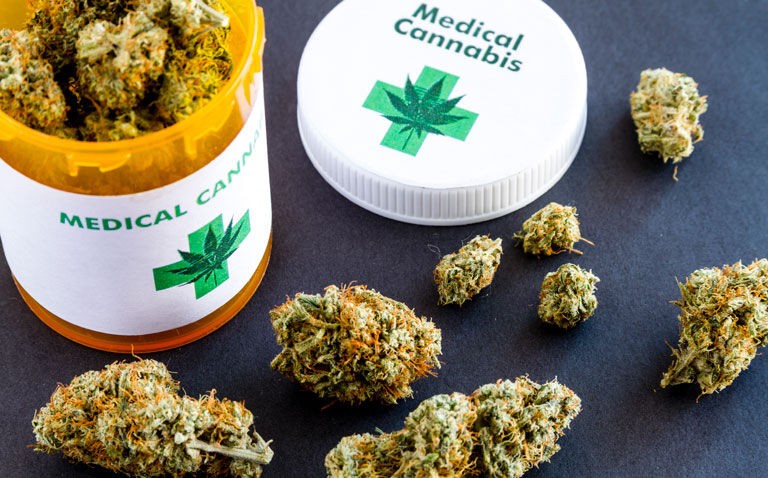A survey has found that medicinal cannabis use substantially reduced the use of opiate-based painkillers and improved physical functioning
Medicinal cannabis use appears to be associated with a reduction in patient’s use of opiate-based analgesics and improvements in self-reported physical functioning according to a study by US researchers.
In the US there has been an opiate crisis of epidemic proportions. Data from the CDC indicate that in the year ending in June 2020, 48,006 deaths were attributable to overdosing on synthetic opioids other than methadone. Fortunately, it appears that the level of opiate-related deaths in the US is beginning to fall with a slight decrease in 2019 compared to 2017. Although there may be any number of reasons as to why deaths are falling, one potential explanation for this reduction is greater use of medicinal cannabis (MC) use compared to opiates. In fact, a 2017 study identified how patients reported less use of opiates, antidepressants, alcohol, anti-anxiety, migraine and sleep medications after using MC. Despite this possible rise in use, an overview of the efficacy, tolerability and safety of cannabis-based medicines for chronic pain management concluded that there were inconsistent findings of the efficacy of cannabinoids in neuropathic pain, painful spasms in multiple sclerosis and for any chronic pain. However, many US states have taken steps to legalise and decriminalise the use of MC. As a result, for the present study, the US team sought to characterise the demographics and use patterns of those who had physician-approved medical cannabis access and to examine patient’s perceptions of changes in health functioning and use of opiate-based pain medicines (OBPM) after access to MC. The team developed a 66-item questionnaire that was distributed online, assessing a wide range of factors including demographics, medical conditions, health functioning and changes in pain medication use before and after use of MC.
Medicinal cannabis and changes to opiate-based medicine use
A total of 2,183 responses were included of whom 54.4% were female and nearly two thirds (64.9%) were aged 30 to 59. A third (33%) of respondents reported that they had 6 or more ailments and nearly half (47.9%) reported having pain and mental health issues, whereas pain alone was reported by only 9.1%.
The majority (54.9%) reported using medicinal cannabis regularly throughout the day and 7.8% had been using medicinal cannabis for more than 10 years.
In terms of physical functioning, bodily pain (e.g., the level of pain or interference of pain in normal work) was reportedly improved by 89.6% of respondents after use of MC, as was social functioning (84.3%).
Prior to MC usage, 60.9% of respondents were using OBPM with 36.8% using hydrocodone-acetaminophen (paracetamol) or oxycodone-acetaminophen (26.8%). However, after using MC, 41.7% reported that they had stopped using pain medicines and 37.5% had reduced their pain medicines. Interestingly, 11.5% reported improved functioning after using MC and reducing their OBPM.
The authors concluded that medicinal cannabis may play an important role at both the individual and community level as a viable alternative to opioids for pain management and without negatively affecting health functioning.
Citation
Prtichett CE et al. Medical Cannabis Patients Report Improvements in Health Functioning and Reductions in Opiate Use Subst Use Misuse 2022










